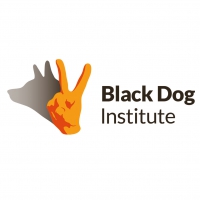Partners
The ImpleMentAll consortium is made up of 16 partners from Europe and Australia. Below you can see a list of all the partners contributing to this project. Click on a partner to read more about them and find their contact information.
Black Dog Institute (BDI)

Partner description
The Black Dog Institute was founded in 2002 and is internationally recognised as a pioneer in the identification, prevention and treatment of mental illness, and the promotion of wellbeing.
We aim to improve the lives of people affected by mental illness through the rapid translation of high quality research into improved clinical treatments, increased accessibility to mental health services and delivery of long-term public health solutions.
Our unique approach incorporates clinical services with our cutting-edge research, our health professional training and community education programs. We combine expertise in clinical management with innovative research to develop new, and more effective strategies for people living with mental illness. We also place emphasis on teaching people to recognise the symptoms of poor mental health in themselves and others, as well as providing them with the right psychological tools to hold the black dog at bay.
We work directly in all parts of the community as well as guiding the development of new and improved policy. We place focus on those with specific mental health needs like young people, Indigenous communities, men, and high-risk workforces.
Our primary areas of mental health research and treatment include: depression, bipolar disorder, post-traumatic stress disorder (PTSD), anxiety, workplace mental health, adolescents and young people, suicide prevention, e-mental health, and positive psychology and wellbeing.
Service description
Black Dog Institute aims to implement an integrated online stepped care service into Australian general practice. The service consists of a sophisticated online assessment and personalised package of evidence-based psychological care that matches individuals’ symptom levels. It provides GPs and patients with
- an online psychological assessment tool that has been designed to fit into the workflow of busy general practices, the results from which are fed back to patients and seamlessly integrated into GP software,
- clinical treatment recommendations about individual patients for GPs to consider along with their own assessment of a patient’s needs, regular monitoring of patients with feedback to patient and GP,
- regular online assessment of patients’ symptoms with alerts and treatment recommendations to the GP, if the patient deteriorates, fails to improve, or indicates suicidal ideation.
We have developed a stepped care eMental health service. This proposed service is in line with a strategic rationale designed to:
- Improve collaboration among State agencies across health, mental health, and human services to deliver person-centred care at the local level.
- Encourage flexibility and innovation and shared accountability for outcomes.
- Achieve financial savings by reducing duplication of services and ensuring better service prioritisation and efficiencies.
Additionally the service aims to strengthen early intervention, provide a stronger focus on community care through GPs and primary care, to develop a responsive system that provides monitoring and ‘stepping up’, integrating care across agencies, and importantly, building a better system by evaluation and testing of new models, using best practice implementation science.
Contacts
All employees

Position: Prof. - Service implementation – NSW Australia site
Email: h.christensen@blackdog.org.au

Associate Professor Jill Newby Jill Newby is MRFF Career Development Fellow and Clinical Psychologist at the Black Dog Institute and UNSW, and leads a program of research into the development and evaluation of e-health mental health interventions.

Dr Belinda Parker is a Research Program Manager at the Black Dog Institute and lead for a project evaluating the effectiveness of an adolescent mental health training program for Educators. Her research focus includes youth anxiety and depression management within primary care and the school context, and the development of e-mental health interventions designed for general practitioners and educators.

As Program Manager for StepCare, Kate has responsibility for the development and implementation of a sustainable StepCare model. The StepCare Service aims to assist GPs in general practice to identify, recommend treatments and monitor patients with symptoms of depression, anxiety and risky drinking. Kate has a Bachelor of Psychology and experience in business development and marketing in the healthcare sector.
